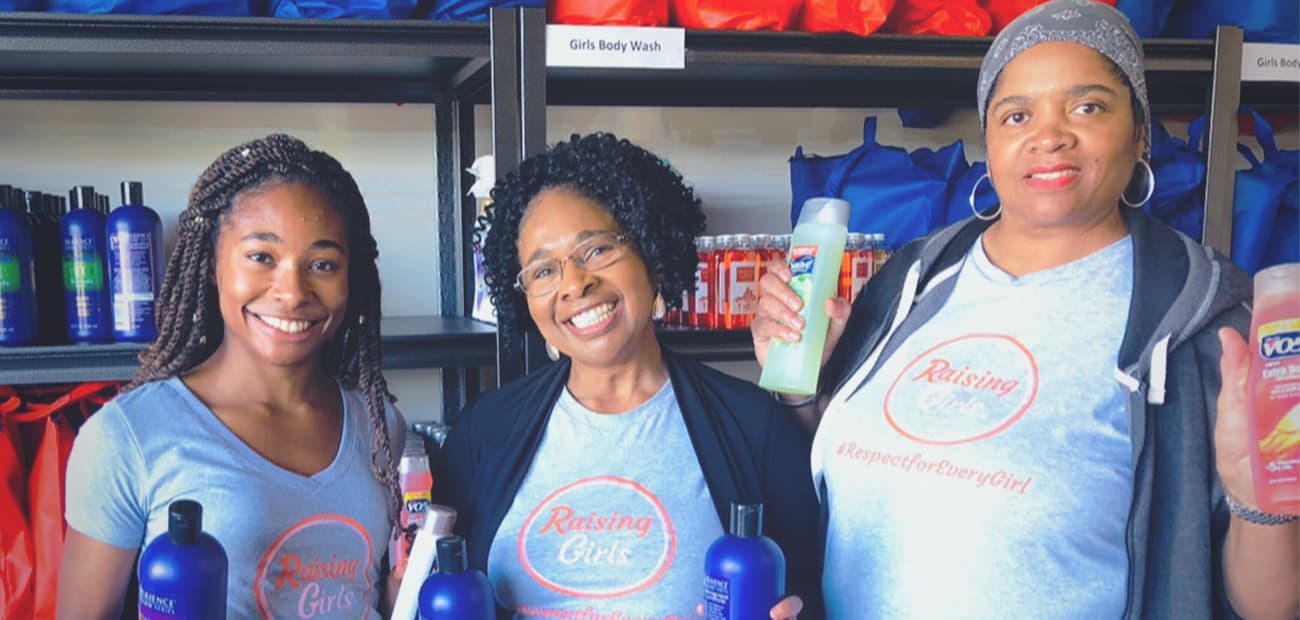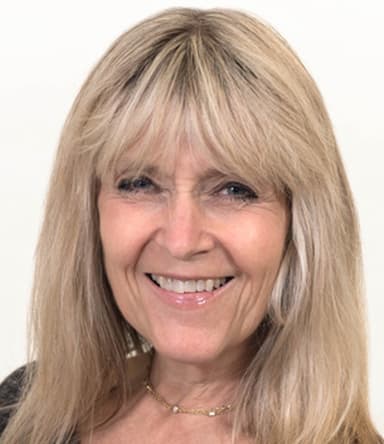2021 Good Neighbor Awards Honorable Mention

Sharon Chambers-Gordon lined her garage shelves with so many menstrual pads, body washes, and shampoo bottles that her daughter’s friend asked, “Is your mom into extreme couponing?”
That wasn’t it.
Chambers-Gordon, a sales associate with Windermere Professional Partners in Tacoma, Wash., runs a nonprofit, Raising Girls, which provides bags of menstrual products to young girls who otherwise can’t access them. By reducing “period poverty,” Chambers-Gordon aims to decrease the odds that girls who can’t afford $10 boxes of tampons will miss school or extracurricular activities to avoid an embarrassing accident. Typically, initiatives like the federal Supplemental Nutrition Assistance Program do not provide sanitary items.
Chambers-Gordon also strives to make girls feel special by adding personal touches to their care bags, such as handwritten inspirational cards. “You don’t know me, but know that I love you,” one note read.
“People are not aware of period poverty. They just think it’s in Third World countries.” —Sharon Chambers-Gordon
She channels her emotions and her real estate skills—being organized, outgoing, and a savvy connector—into Raising Girls. Since she launched the charity in 2017, she and her volunteers have distributed more than 10,500 care bags and raised more than $125,000, plus product donations. The organization serves 38 schools in six districts in lower Puget Sound and supports other nonprofits.
“It’s kind of like Christmas,” says Carrie Holden, president and CEO of Boys & Girls Clubs of South Puget Sound, which has distributed about 300 care kits from Raising Girls. “They’re handed this surprise gift bag, and they’re not sure what’s in it. There’s something about receiving something that someone has taken the time to handwrite today, especially for young folks when so much of their world is digital. A note from a stranger to them, affirming who they are—it just melts my heart.”
Chambers-Gordon makes sure the process is “done in a way that has dignity,” says Holden. “It’s not like, ‘Here, we think you need soap.’ It’s fun bodywash. It’s the nail polish, the fun hair things. At the same time, you’re getting some things you really need at home, too.”
Gender Inclusive Efforts
Boys, too, can receive hygiene bags—minus the menstrual products—which intentionally don’t bear the Raising Girls name so as not to marginalize anyone who’s in need. “Boys need that little boost just as much as the girls do,” Holden says.
“People do have a heart of giving,” says Chambers-Gordon. “They just need to be asked.”
Among the products in both boys’ and girls’ bags: shampoo, conditioner, body wash, lotion, a toothbrush, toothpaste, and a washcloth. All items are brand new and full size, and the bags are not transparent. “The discreetness is a plus,” says Milagros Thompson, a guidance counselor at Baker Middle School in Tacoma. “These kids are modest and don’t want people knowing their situation. … It’s not a bag that says, ‘I got free stuff.’”
The handwritten card that comes in each bag can be a keepsake. One girl in middle school read hers and said, “‘I love this. I’m going to put this on my mirror,’” recalls Kristin Mitchell, a school counselor at Giaudrone Middle School in Tacoma.
‘She’s a Rock Star’
Chambers-Gordon learned about giving back from her Jamaican mom and shares that spirit with Amara, her only child. “Since I was young, we would throw holiday parties, and instead of asking for gifts, we would ask people to bring donations for the YWCA, for food drives,” says Amara, 23, a Microsoft technical project manager who volunteers as Raising Girls’ social media manager. During the pandemic, her mom drove a care bag to someone without bus fare. “She’s a rock star,” says Amara.
“’You’re amazing. Believe in yourself.’” —a volunteer-penned note tucked into a Raising Girls care bag
Before Chambers-Gordon switched to a real estate career four and a half years ago, she employed a giveback philosophy at the University of Puget Sound, where she was the director of fellowships and scholarships. “One of our students got a Rhodes scholarship because of [Chambers-Gordon’s mentorship],” says Ellen Peters, associate provost for institutional research, planning, and student success. “Some people will talk a good game, but they won’t do the work. She does both.”
Contributing to Change
“Sharon has this way of seeing a gap that needs to be filled and filling it,” Peters says. Chambers-Gordon has been so effective at raising awareness of young girls’ health that her work even contributed to new legislation in Washington state: For the 2022-23 academic year, schools will be required to stock menstrual products.
Chambers-Gordon makes it easy for girls to get care bags, quickly responding to requests without requiring people to fill out extensive forms. “It was straightforward,” says Christine Young, whose 9-year-old daughter, Elise Brown, just started her period. “It was a wonderful experience.”
“There are certain people in your life who you admire and look up to as models for the way you would love to be,” Peters says. “Sharon is one of those people in my life.” During difficult times, Peters adds, she even asks herself: “How would Sharon handle this?”
Contact Sharon Chambers-Gordon at scgordon@windermere.com and learn more at www.raisinggirls.org.











